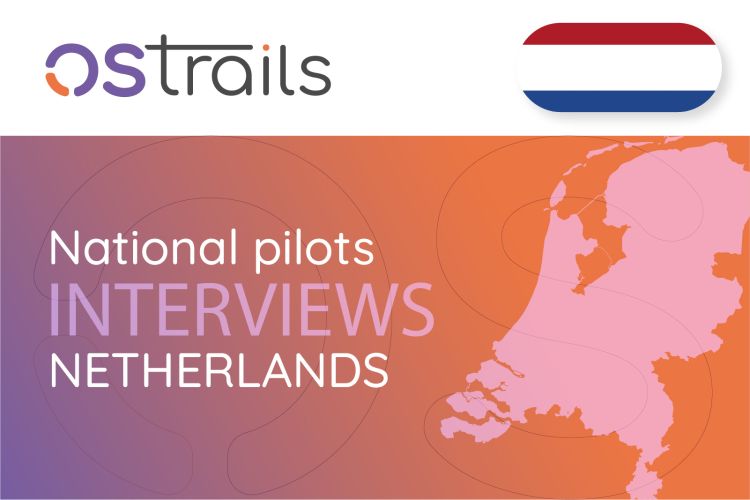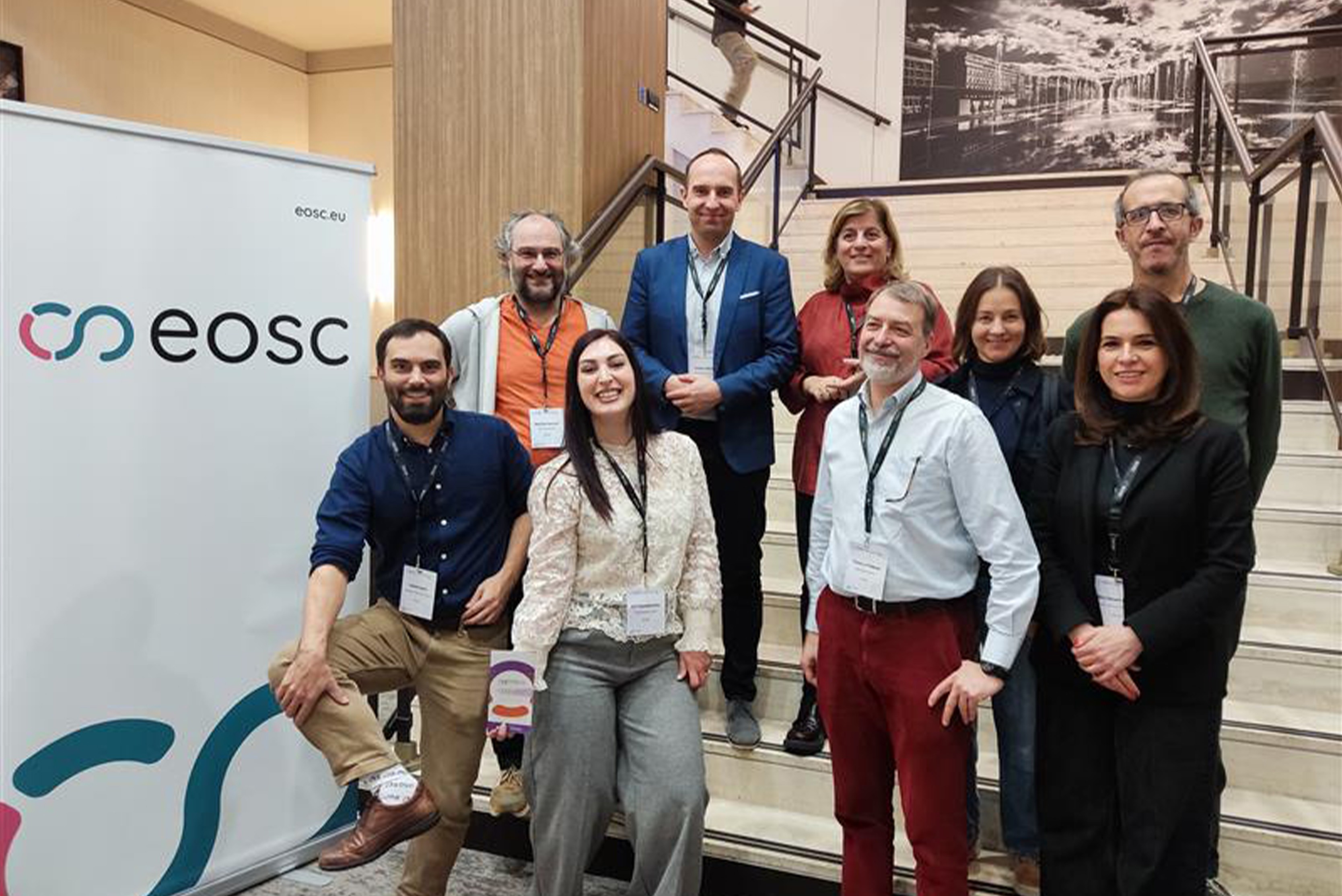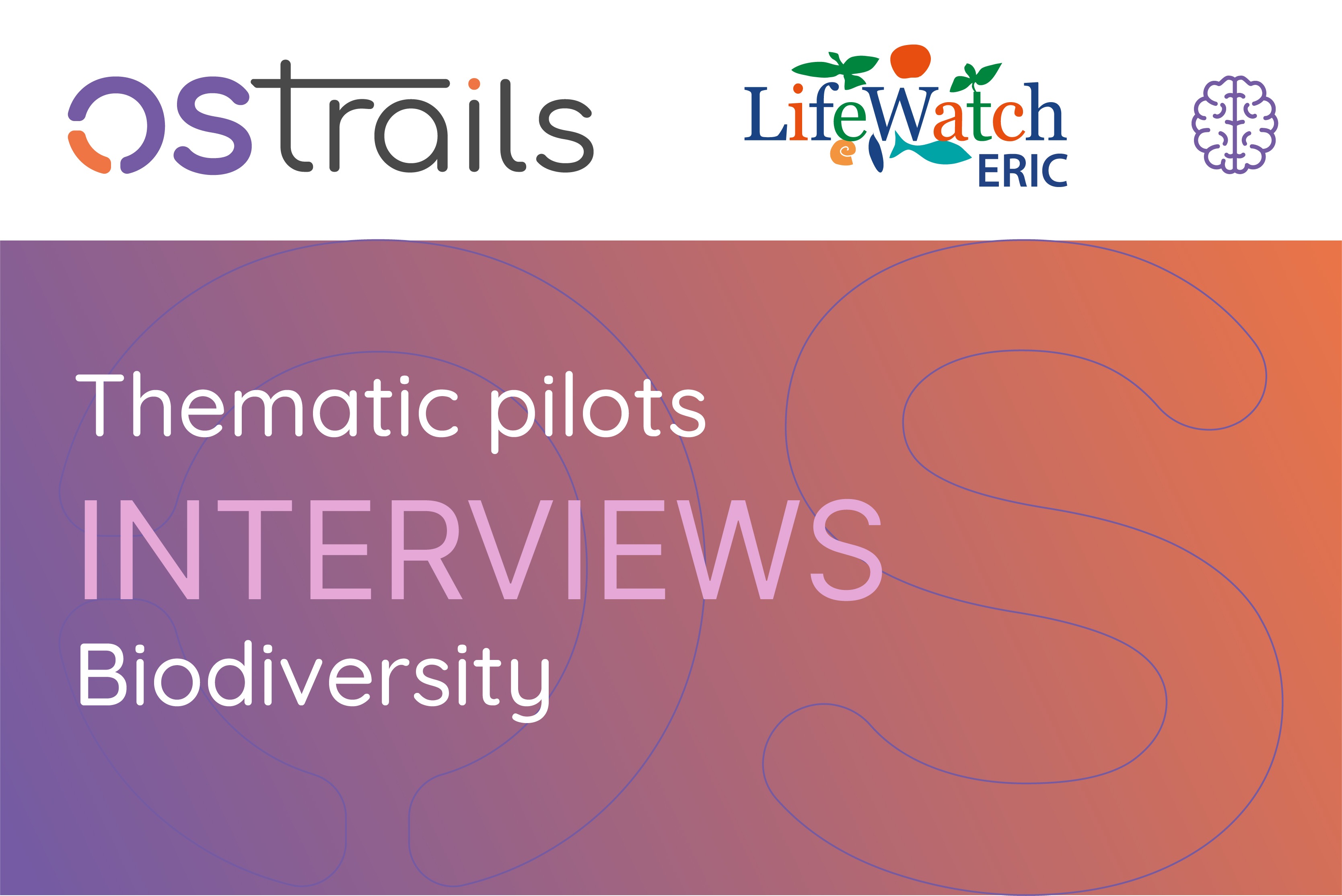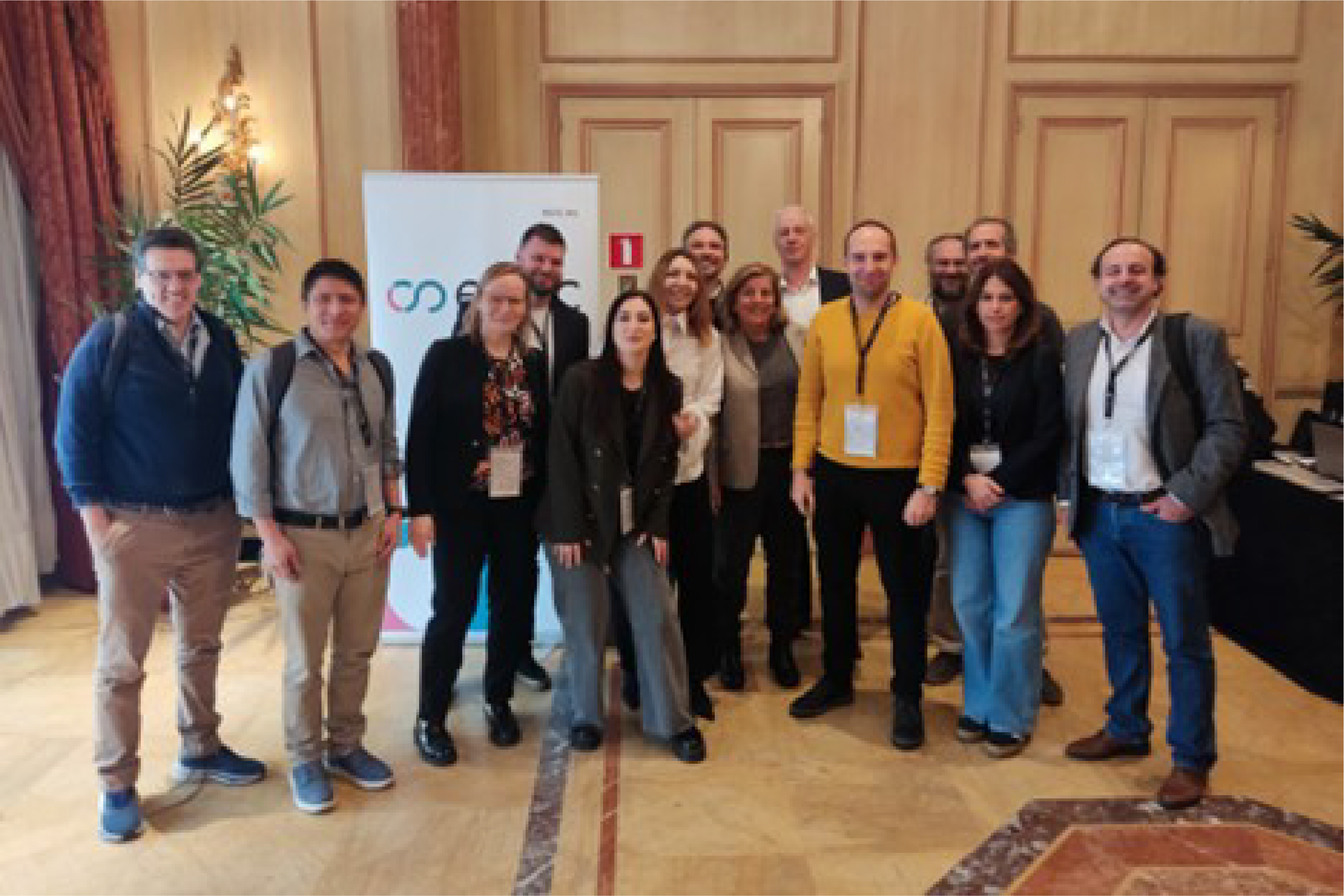Read the National Pilot Interview from the Netherlands and explore all the progress of OSTrails pilot studies. Check the latest on their national activities and learn how they’re progressing with the integration of open science and research assessment. This month we had the pleasure of discussing with Eileen Waegemaekers from SURF and Andrew Hoffman from CWTS/CADS at Leiden University. Enjoy!
 - Eileen Waegemaekers
- Eileen Waegemaekers
 - Andrew Hoffman
- Andrew Hoffman
"To successfully innovate in research data management, open science, and open research information requires the ongoing alignment between the ecosystem of tooling and infrastructure on the one hand, and the values and practices of heterogeneous stakeholder groups and end-users on the other. Through a thriving collaboration between data stewards, open research information and research IT experts, and researchers themselves, the Dutch national pilot on OSTrails aims to confront this challenge head-on. Our project is well-positioned to inform pathways for the wider uptake and interoperability of machine actionable data management plans – both here in the Netherlands, and across the European landscape – and we’re pleased to also be able to learn from the many other colleagues who are contributing to this important initiative."
-Can you briefly introduce your organisation? How does it/do they contribute to EOSC?
Formally, the Dutch national pilot (N-3) is a collaboration between SURF, the collaborative organization for research and education IT in the Netherlands, and the Centre for Science and Technology Studies (CWTS), an academic research center in the Faculty of Social Sciences at Leiden University – with support from the Dutch Research Council (NWO), one of the main research sponsors in the Netherlands. Since receiving the initial news last year that the OSTrails project as a whole had been funded, the project consortium has already expanded significantly and now includes several Dutch universities and universities of applied sciences: Leiden University, TU Delft, Utrecht University, VU Amsterdam, and Saxion University of Applied Sciences (with the latter also acting as an interface with the many other universities of applied sciences in the Netherlands.) Our pilot critically depends upon –and deeply benefits from the participation and insights of– an engaged and committed group of stakeholders from these organizations, who bring a wealth of expertise in the areas of research data and software management, open science, open research information, research infrastructure and ICT, and research policy and evaluation. SURF, CWTS, and the NWO all actively participate in EOSC initiatives, which further fosters continuous dialogue and collaboration within the EOSC community, and with constituencies across the Dutch research landscape.
-What are you most excited about in OSTrails? What are you looking forward to?
One thing we’re really excited about is simply deepening the collaborative relationships within this stellar national consortium, particularly as we explore the affordances of maDMPs for planning and assessing scientific knowledge production, and for tracking the circulation, sharing, and reuse of research data and outputs, be they text-based, tabular, or otherwise. Additionally, beyond our commitment to hosting the more ‘generalist’ funder- and RPO-specific DMP templates on maDMP tooling platforms, we’re also stoked to start experimenting with developing domain-specific templates and guidance for (machine-actionable) data management plans. We created this deliverable based on the needs of the different research communities –including those that trade in more non-traditional research outputs (NTROs)– with whom many of our consortium members actively engage on a daily basis in their work as Data Stewards. More broadly, one of the coolest things about our involvement in the OSTrails consortium is that it enables us to better understand, test, and even contribute to shaping the state of the science in machine actionable data management planning –both in terms of tooling as well as the standards that underlie it.
-How is planning, tracking and assessing research being realised in your country/scientific domain?
In the Netherlands, most RPOs now have clear policies that require researchers to create DMPs, and many organizations employ one or many research data management experts who are available to provide guidance and feedback on drafting DMPs. In this sense, research planning is generally left to individual researchers, and typically happens in consultation with Data Steward or similarly qualified personnel.
As far as tracking and assessing research outputs is concerned, this is not currently standardized across institutions. Most Dutch RPOs do not have clear follow-up policies or corresponding infrastructure to track whether materials that were identified in the planning phase have ultimately been deposited in the designated (or in any) repository, for example, nor do RPOs systematically assess whether the outputs in question adhere to the FAIR principles. With our involvement in OSTrails, we aim to elucidate and potentially address these gaps in future Dutch research policy developments, and SURF in particular has the ambition to develop an SKG that can be used for monitoring at the national level –although this initiative is still at an early stage.
-What is your pilot about? Can you provide some details on the main actors, services and priorities? How will the results of OSTrails be adopted by your pilot?
The main goal of our pilot is to learn from and contribute to innovations in research data management, open science, and open research information beyond the status. We do this through experimenting with –and sensibly implementing– novel approaches to research data management planning.
Our first three deliverables are more research- and data stewardship-facing and include encoding existing funder- and RPO-specific DMP templates in maDMP platforms; developing novel domain-specific templates and guidance and testing these against existing evaluative criteria and rubrics; and, wherever possible, embedding FAIR Implementation Profiles into maDMP templates. The latter three deliverables are slightly more technical in scope, and include ‘PID’-ifying maDMP templates, which means mapping relevant fields of maDMP templates (e.g., where grant information about a project is documented) to existing persistent identifiers (e.g. Grant-ID); using these PIDs as a means of interoperating maDMPs with local CRIS systems, and eventually to interoperate maDMPs with the OpenAIRE graph such that we can extend the graph with (PIDs of) data management plans drafted by researchers in the Netherlands.
Our key stakeholders include data stewards, librarians, IT support personnel, service providers, and of course researchers themselves! Above all, we are driven by a commitment to ensuring that maDMPs are usable by and meaningful for researchers, Data Stewards, and other stakeholders; that they contribute to recognizing and rewarding the efforts that researchers invest in open science practices; and that they simultaneously enable the efficient exchange of research information with other components of the open research information ecosystem.
-Ongoing activities and Next Steps?
In the context of the national pilot, we’ve just hosted a successful workshop at SURF Research Day called ‘What’s behind the Data Management Plan of the future?’ where we gathered over 50 research data management and research IT stakeholders from Dutch RPOs to collectively brainstorm answers to this question. It was super inspiring to see so many colleagues show up and share their ideas, which will feed directly into our national pilot. From here, we’re now in the process of setting up two working groups – one focused on the initial launch/trialing of one (or multiple) maDMP platforms, and a second on exploring common questions across RPO-specific DMP templates. We’re also planning pilot interviews to explore researcher needs for domain-specific templates and associated guidance, which we’ll be starting in Fall 2024. Finally, concerning the wider OSTrails project, we’re keen on engaging in discussions about establishing core/common (meta)data from/about DMPs that can be publicly exposed in science knowledge graphs, even in situations where the full text of the DMP cannot be published (e.g., for privacy or security reasons).
Thank you both!




